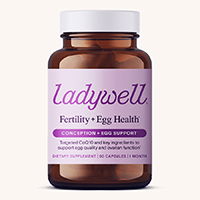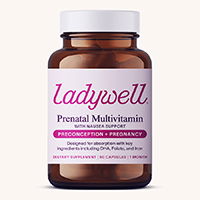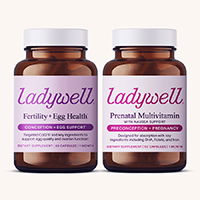Progesterone is a critical hormone for reproductive health, playing a central role in preparing the body for pregnancy, regulating the menstrual cycle, and influencing mood. While its primary function is linked to fertility, progesterone supports various aspects of physical and emotional well-being, making it essential for women navigating hormonal health challenges.
What Is Progesterone?
Often overshadowed by estrogen, progesterone is another vital hormone for reproductive health. Produced mainly in the ovaries, progesterone regulates menstrual cycles, supports early pregnancy, and maintains uterine health. Beyond reproduction, it also affects the nervous system and cognitive function.
Both men and women produce progesterone, but in differing amounts. While women need it for pregnancy and hormonal balance, men rely on smaller amounts for sperm production and hormone development.
As women approach menopause, progesterone levels decline, leading to changes in hormonal balance that can impact overall health.
Progesterone vs. Estrogen: Key Differences
Progesterone and estrogen are the power duo of reproductive health, but they serve distinct functions:
- Estrogen: Promotes the development of secondary sexual characteristics, regulates the menstrual cycle, and manages the onset of menstruation.
- Progesterone: Stabilizes the menstrual cycle, prepares the uterus for pregnancy, and supports early fetal development.
Together, these hormones maintain balance, ensuring each stage of the menstrual cycle runs smoothly.
Functions of Progesterone
During the Menstrual Cycle
Progesterone production peaks after ovulation, helping thicken the uterine lining to prepare for a potential pregnancy. If fertilization doesn’t occur, progesterone levels drop, triggering menstruation.
During Pregnancy
Dubbed the “pregnancy hormone,” progesterone sustains early pregnancy by thickening the uterine lining and stimulating blood vessel growth. As pregnancy progresses, the placenta takes over progesterone production, ensuring a supportive environment for fetal development and triggering lactation.
In Men
Although produced in smaller quantities, progesterone in men supports sperm production and hormone balance, underscoring its importance in male reproductive health.
How Is Progesterone Controlled?
The production of progesterone is regulated by the luteinizing hormone (LH). After ovulation, the corpus luteum—a temporary gland in the ovaries—produces progesterone.
If fertilization occurs, human chorionic gonadotropin (hCG) keeps the corpus luteum intact, maintaining progesterone levels. Without fertilization, the corpus luteum disintegrates, leading to a drop in progesterone and the onset of menstruation.
Why Test Progesterone Levels?
Progesterone testing is essential for diagnosing fertility issues, monitoring pregnancy, and assessing hormonal balance. Common reasons for testing include:
- Confirming ovulation
- Evaluating early pregnancy health
- Investigating abnormal uterine bleeding
- Diagnosing adrenal disorders
- Monitoring high-risk pregnancies
Normal Progesterone Levels
Progesterone levels vary depending on your menstrual cycle, pregnancy stage, or life phase. Normal levels (measured in ng/mL) include:
- Follicular Phase: < 0.7 ng/mL
- Luteal Phase: 2–25 ng/mL
- First Trimester: 10–44 ng/mL
- Postmenopause: < 0.5 ng/mL
High Progesterone: Causes and Effects
Elevated progesterone levels are normal during pregnancy but may signal underlying conditions like ovarian cysts, adrenal disorders, or even ovarian cancer in non-pregnant individuals.
Low Progesterone: Causes and Symptoms
Low progesterone can lead to fertility challenges, pregnancy complications, and hormonal imbalances. Common causes include:
- Anovulation (failure to release an egg)
- PCOS or endometriosis
- Stress
- Hypothyroidism
- Overexercising or extreme dieting
Symptoms of low progesterone:
- Irregular periods
- Weight fluctuations
- Fatigue
- Low libido
- Mood changes
Progesterone and Fertility
Progesterone is essential for conception and maintaining pregnancy. Low levels can result in anovulation, irregular cycles, and early pregnancy loss. Testing progesterone levels is often a first step in identifying fertility challenges.
Supplements and Fertility
When thinking about your fertility, it's smart to take a proactive approach so you are setting yourself up for the best chances of success. Targeted supplements like Ladywell's Fertility + Egg Health are ideal to take when trying to conceive or even before you start trying. It's recommended to start 6 months prior to the start of trying to conceive with a fertility boosting supplement like Ladywell's Fertility + Egg Health and a quality prenatal multivitamin.
Supporting Progesterone Balance
To maintain healthy progesterone levels:
- Eat a nutrient-rich diet with foods high in magnesium, zinc, and B vitamins.
- Manage stress levels through mindfulness and regular sleep.
- Consider adding a women’s health supplement to fill nutrient gaps.
Supplements and Hormonal Health
Maintaining balanced progesterone levels is essential for overall hormonal health, and targeted supplementation can play a key role in supporting your body’s natural processes. Nutrients like magnesium, zinc, B6, and chaste tree berry are known to help promote progesterone production and alleviate symptoms of hormonal imbalance.
Ladywell's Daily Hormone Balance is an ideal supplement for helping maintain hormonal health. Ladywell has reimagined hormone care with ultra-targeted, life-stage supplements designed specifically for women. Whether you’re navigating puberty, pregnancy, or perimenopause, our formulations provide the essential nutrients your body needs to maintain hormonal wellness.
By understanding progesterone’s critical role, women can take charge of their hormonal health, ensuring balance and well-being at every stage of life.
Disclaimer
The information provided in this blog is for educational purposes only and is not intended as a substitute for professional medical advice. Always consult a qualified healthcare provider before making any changes to your health regimen, especially if you are pregnant, nursing, or taking any medications.

















































